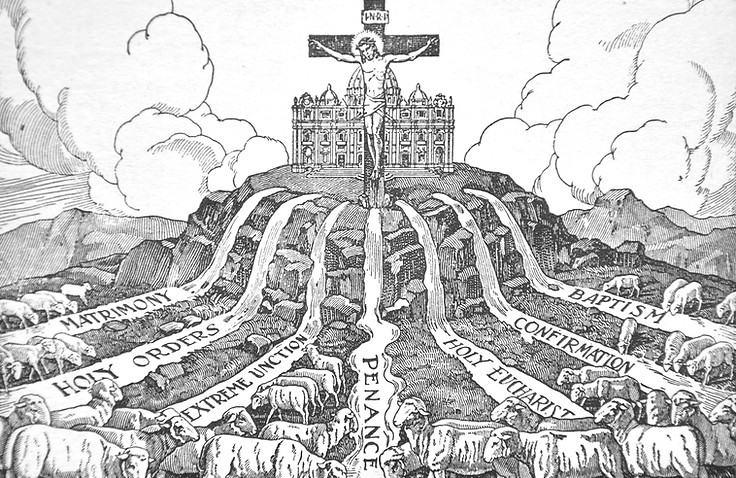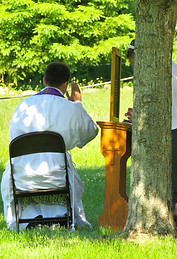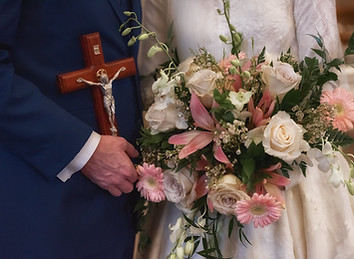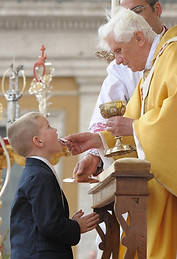The reception of the sacraments is the very life of the One, Holy, Catholic, and Apostolic Faith. Our Lord Jesus Christ told us:
"Amen, amen I say unto you: Unless you eat the flesh of the Son of Man, and drink His blood, you shall not have life in you. He that eateth My flesh, and drinketh My blood, hath everlasting life: and I will raise him up in the last day." (John 6:54-55)
Our Lord's words indicate the great necessity of receiving the Most Holy Eucharist which contains His Body, Blood, Soul, and Divinity. “The Body and Blood, together with the Soul and Divinity of our Lord Jesus Christ, and therefore the whole Christ, is truly, really and substantially contained in the sacrament of the Holy Eucharist” (Council of Trent, Session XIII). The other sacraments are oriented toward the Sacrament of the Eucharist.
The Sacraments always give grace, if we receive them with the right dispositions. Therefore, parishioners are encouraged to frequently receive the Sacrament of Confession in order that they might be well disposed to receive the other sacraments in a state of grace. The traditional Baltimore Catechism tells us that “a sacrament is an outward sign instituted by Christ to impart grace.” There are seven sacraments:
-
Sacraments of the Dead: Baptism and Penance are called sacraments of the dead because their chief purpose is to give the supernatural life of sanctifying grace to souls spiritually dead through sin.
-
Sacraments of the Living: Confirmation, Holy Eucharist, Anointing of the Sick, Holy Orders, and Matrimony are called sacraments of the living because their chief purpose is to give more grace to souls already spiritually alive through sanctifying grace.
He who knowingly receives a sacrament of the living in mortal sin commits a mortal sin of sacrilege, because he treats a sacred thing with grave irreverence. (I Corinthians 11:27)

"The Holy Sacrifice of the Mass is the fulfillment of all of the sacrifices of the Old Covenant. In the New Covenant, the one sacrifice on the altar of Calvary is revisited during each and every Catholic Mass. Jesus Christ merited all graces and blessings for us by His death on the Cross. These merits form an inexhaustible fountain of grace to nourish the supernatural life of souls. At Calvary, Christ not only merited all graces for us but also established certain channels whereby these graces may be obtained. These channels are the Sacrifice of the Mass and the other Sacraments."
-Rev. Msgr. George Moorman



